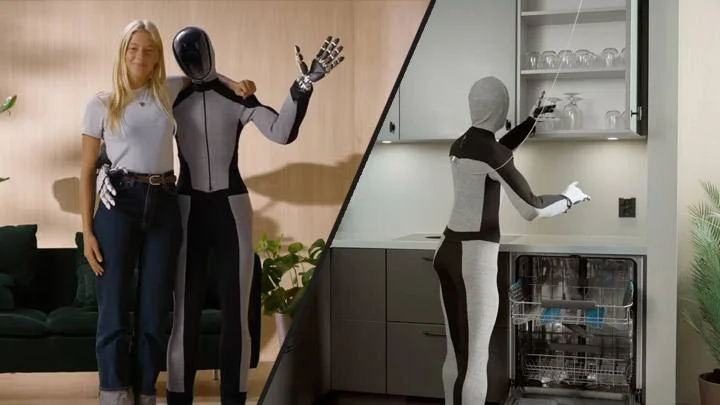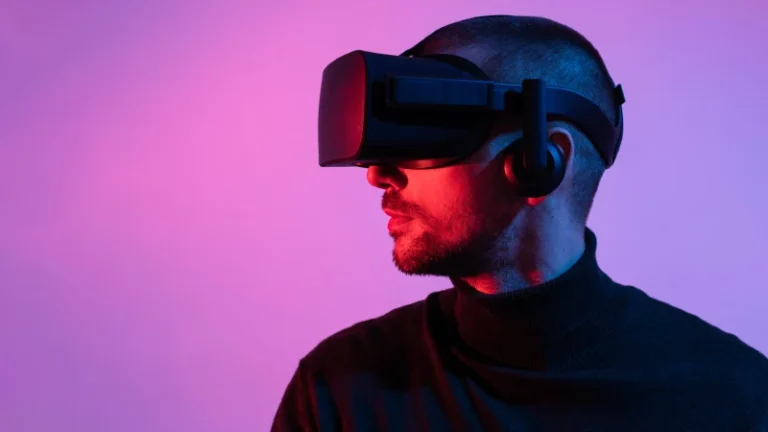NEO: The humanoid robot ready for pilot tests this year

Norwegian startup 1X Technologies has taken a significant step in humanoid robot development with the announcement of NEO Beta, a humanoid robot prototype designed to assist with daily tasks at home. With pilot tests scheduled to begin this year, NEO promises to transform how we interact with technology in our domestic environments.
After more than a decade of research and development, 1X Technologies had already made a mark in the market with the launch of the EVE robot in 2017, the precursor to NEO. To prepare for large-scale deployments, the company recently strengthened its management team with experienced corporate professionals, demonstrating a serious commitment to the commercial viability of NEO.
Two videos released by 1X showcase NEO’s abilities in everyday situations. In one scene, the robot helps a person retrieve and deliver a backpack, while in another, it demonstrates its skill by unpacking wine glasses and delicately handling eggs. The precision and naturalness of NEO’s movements impress with their resemblance to human behavior, even sparking suspicions that the videos might have been staged with disguised humans.
Standing 1.65 meters tall and weighing only 30 kilograms, NEO is designed to fit seamlessly into human environments. Unlike many robots that use rigid hydraulic systems, NEO adopts a structure inspired by human muscles, enabling smooth and precise movements while also being capable of carrying up to 20 kilograms. These characteristics make NEO an ideal assistant for tasks requiring a gentle touch.
One of the most intriguing features of NEO is its non-verbal communication ability. Although the robot does not speak, it intuitively responds to gestures, body language, and voice commands, making interaction with humans more natural and fluid. 1X emphasizes that this ability to interpret subtle signals is essential for creating a more organic connection between humans and machines. “By mimicking human behavior in both movement and response, NEO bridges the gap between man and machine, making interactions natural and intuitive,” 1X said in a statement.
“Our priority is safety,” said Bernt Børnich, CEO of 1X. “Safety is the cornerstone that allows us to confidently introduce NEO Beta into homes, where it will gather essential feedback and demonstrate its capabilities in real-world settings.”
“This year, we are deploying a limited number of NEO units in selected homes for research and development purposes,” he explained. “Doing so means we are taking another step toward achieving our mission.”

Another notable aspect of NEO is its silent operation. Unlike many industrial robots, whose actuators are notoriously noisy, NEO operates almost imperceptibly, allowing it to integrate seamlessly into domestic environments without causing disturbances. Additionally, its five-fingered hands provide exceptional dexterity and precision, enabling it to handle fragile objects safely and effectively.
NEO’s success is not limited to its physical form; it is also powered by an advanced artificial intelligence system that allows continuous learning and adaptation. Based on the experiences of EVE, NEO can autonomously navigate different spaces and understand natural language commands, becoming more efficient as it accumulates experience. This learning capability is crucial for developing robots that can adapt to users’ changing needs and operate effectively in dynamic environments.
With the beginning of pilot tests, NEO positions itself as a significant milestone in the evolution of domestic robots. The success of these tests could pave the way for a new era of human-machine interaction, where humanoid robots become an integral part of our daily lives, not only as utilitarian tools but as intuitive and reliable companions.
The future promised by NEO is one of a domestic environment where repetitive and laborious tasks are delegated to robots, freeing up time and energy for more meaningful and enjoyable activities.







My husband has Parkinson’s and I have heart and kidney problems and would love to be in your test pilot program to have Neo in our home to see if he could be of help to us in our daily lives. We don’t have any home health care coming in, so right now we don’t have anyone to help with helping my husband get dressed or help to get into the shower, etc. I’m not able to help him much anymore, so this would really help us out. I love science and am amazed at what is being developed these days. We’d be willing to give Neo a chance to prove he can be a help to people with disabilities like us. Thank you for your consideration.